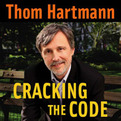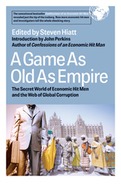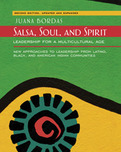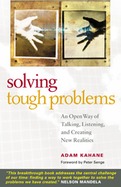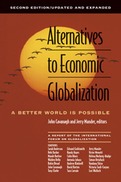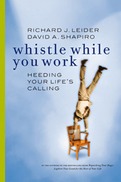• Builds on the shocking picture of worldwide economic corruption first presented in John Perkins' Confessions of an Economic Hit Man
• Features a dozen chapters detailing contemporary examples of how the economic hit man game is played around the globe
John Perkins’ controversial and bestselling exposé, Confessions of an Economic Hit Man, revealed for the first time the secret world of economic hit men (EHMs). But Perkins’ Confessions contained only a small piece of this sinister puzzle. The full story is far bigger, deeper, and darker than Perkins’ personal account revealed. Here other EHMs, journalists, and investigators join Perkins to tell their own stories, providing the first probing and expansive look into this pervasive web of systematic corruption.
With chapters spotlighting how specific countries around the globe have been subverted, A Game As Old As Empire uncovers the inner workings of the institutions behind these economic manipulations. The contributors detail concrete examples of how the “economic hit man game” is still being played: an officer of an offshore bank hiding hundreds of millions of dollars in stolen money, IMF advisers slashing Ghana’s education and health programs, a mercenary defending a European oil company in Nigeria, a consultant rewriting Iraqi oil law, and executives financing warlords to secure supplies of coltan ore in Congo. Together they show how this system of corruption and plunder operates in real life, and reveal the price that the rest of the world must pay as a result.
Most important, A Game As Old As Empire connects the dots, showing how the various pieces of this system come together to create the world’s first truly global empire.
A much-needed revised edition of the only book that presents a multicultural leadership model integrating eight practices from African-American, American Indian, and Latino communities—an alternative to the heavily or exclusively Anglo-American based concepts of leadership presented by most leadership books. The first edition has sold 20,000 copies, was the winner of the International Latino Book Award, Best Business Book, and was on the Rocky Mountain News Bestseller list. NEW EDITION, REVISED AND UPDATED One of America’s historic strengths is the ability to incorporate aspects from many different cultures to create a stronger whole. Our music, literature, sports, architecture, food, and fashion have all benefitted. But current leadership approaches are overwhelmingly written by White males and remain distressingly Eurocentric. Juana Bordas has set out to change this. In this influential book, she shows how incorporating Latino, Black, and American Indian approaches can enrich leadership and offers a more viable model for our expanding multicultural society.
-
Identifies nine core leadership principles common to Latino, African American, and American Indian cultures
-
Incorporates these principles into a multicultural leadership model that is uniquely suited to our changing demographics
-
Combines personal reflections, interviews with community leaders, historical background, and contemporary case examples
One of America's historic strengths has been our ability to incorporate aspects from many different cultures to create a stronger whole. Our music, literature, language, architecture, food, fashion, and more have all benefitted. But leadership approaches have remained distressingly Eurocentric.
Juana Bordas set out to change this in the first edition of this influential book. She showed that incorporating Latino, African American, and American Indian approaches to leadership into the mainstream can strengthen leadership practices and better inspire today's ethnically rich workforce.
This message has only become more urgent. The 2010 census revealed that in four decades minorities will constitute over 50 percent of the populationand in one decade a majority of Americans under age eighteen will be nonwhite. More than ever we need a leadership model htat resonates with our country's growing diversity. Bordas incorporates this latest census data into this second edition, which now identifies ninerather than the previous edition's eightcore leadership principles common to all three cultures. The new principle deals with intergenerational leadership, of vital importance now that many organiziations will have four generations working side by side.
Using a lively blend of personal reflections, interviews with leaders from each community, historical background, and insightful analysis, Bordas illustrates the creative ways these principles have been put into practice in communities of color. The multicultural leadership model developed in this book offers a more flexible and inclusive way to lead and a new vision of the role of the leader in organizations and in our increasingly multicultural world.
Adam Kahane has worked on some of the toughest, most complex problems in the world. He started out as an expert analyst and advisor to corporations and governments, convinced of the need to calculate “the one right answer.” After an unexpected experience in South Africa during the transition away from apartheid, he got involved in facilitating a series of extraordinary high-conflict, high-stakes problem-solving efforts: in Colombia during the civil war, in Argentina during the collapse, in Guatemala after the genocide, in Israel, Northern Ireland, Cyprus, and the Basque Country. Through these experiences, he learned to create environments that enable new ideas and creative solutions to emerge even in the most stuck, polarized contexts. Here Kahane tells his stories and distills from them an approach all of us can use to solve our own toughest problems—at home, at work, in our communities, and in national and international affairs.
“This breakthrough book addresses the central challenge of our time: finding a way to work together to solve the problems we have created.”
—Nelson Mandela
- The definitive document of the anti-corporate globalization movement-the consensus report of an alliance of leading activists, scholars, economists, researchers, and writers
- Offers a constructive, coherent, positive alternative to globalization-the very thing that the anti-corporate globalization movement is always accused of not putting forward
- The International Forum on Globalization consists of the leaders of over 60 organizations in 25 countries -including such prominent organizations as Friends of the Earth, the Third World Network, the Sierra Club, the Institute for Policy Studies, Public Citizen, Rainforest Action Network, and Food First
• Winner of the 2001 Career Book of the Year award from ForeWord Magazine
• By the authors of the international bestseller, Repacking Your Bags (more than 220,000 copies sold)
• Through practical advice and a breakthrough exercise-Calling Cards-helps readers identify their callings and choose a way of life and work consistent with their gifts, passions, and values
• Takes a challenging concept-calling-and makes it accessible and practical to our everyday lives
• Numerous real-life stories and examples offer hope that meaningful work is possible and within our grasp


